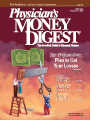Publication
Article
New Year's Market Paints the Town Green
Author(s):
The year 2003 started off witha bang as market participantscelebrated the end of2002 by launching the Dow over8800 and up over 400 points in thefirst 2 weeks of the new year. Themove was one for the record books asthe Dow scored the best return forthe first week of any year.
Most investors were stumped tofind plausible answers for the move.But some market pros recalled oldadages, such as: "The first 5 days ofJanuary foretell the month," "Thefirst month foretells the year," and,"As January goes, so goes the year."These moves had investors cheeringand hoping for an up year. But whatreally happened to warrant such aperformance? Actually, nothing.
The talk about war with Iraq continued,tensions increased with NorthKorea, and corporate earnings reportsweren't expected until the middleof the month. So what motivatedinvestors? It's this writer's opinionthat the January effect, combinedwith a very vocal President Bush,helped convince investors to buy.
The January effect is a phenomenonin the markets in which oversoldstocks bounce higher as the demandto sell shares for tax considerationsdeclines. Over the years, the Januaryeffect on stock prices actually startedduring the Santa Claus rally, but inthe past 3 years, the decline of stockprices managed to control bothoccurrences. And Santa didn't actuallyshow up last December, so theJanuary rally had a larger impact.
BUSH'S TAX PROPOSAL
President Bush may have alsohelped investors as he came backswinging from the holiday vacation.The president saw the opportunity toadvance his agenda as the Republicanscontrol both houses of Congress.Stockholders cheered Bush'splan to eliminate the taxation onstockholder dividends. His premisefor the more investor-friendly treatmentis based on the fact that thegovernment taxes the dividends thatcorporations pay to shareholderstwice. First, the money is taxed asearnings at the company level, andthen taxed as investors declare theearnings on tax returns.
By removing the taxation on theshareholder level, investors wouldhave more disposable income andpotential investors would view stocksmore positively. The impetus to createdividend growth would be increasedas corporations see thedemand for their shares rise. By doingthis, corporations would have anincentive to use equity instead of debtin the expansion of their businesses.
The Democrats and local governmentswere quick to discredit theproposals. Local and state politicianssaid that by giving dividends atax-free status, municipal tax-freebonds would have less demand, and,thus, public entities would have toraise rates to entice investors. Thedebate on this will continue.
AN INDEBTED SYSTEM
But one thing is certain: The meremention of tax-free dividends helpedstock prices spike and pushed nonpayingdividend stocks like Oracle,Cisco, Dell, and Microsoft to considerpaying dividends. In fact, Microsoftrecently declared their first dividendin history. This philosophy mayencourage corporations to find waysto use equity to promote their growthand reduce the demand for debt.
The system is flawed right now.The use of debt over the past 20 yearshas helped companies grow, but hasalso helped them step into trouble asthe amount of debt on and off thebalance sheet exploded. Most of thefront-page bankruptcies of the past 3years occurred with companies thatused massive amounts of debt to fueltheir growth. As the economy slowed,that debt could not be serviced. Someof these companies may have escapedbankruptcy if they had less debt ontheir balance sheets. But we'll savethis argument for another time.
DIVIDEND STOCK SURGE
Now back to the Street ofDreams. The 2-week rally had a bigeffect on oversold stocks of last yearand on stocks of dividend-payingcompanies. The tech stocks bouncednicely as IBM (IBM) led the waywith a significant jump. Telecomstocks like Nortel (NT), Lucent(LU), and Qwest (Q) doubled.Utility stocks bounced as investorsviewed the group as a safer place tohide, especially with dividendincome on some of the stocks over6%. Public Service of New Jersey(PEG) hit a low of around $20 inOctober, down from the mid-$40s,on worries over energy prices, falloutfrom Enron, and the market malaiseitself. Recently, PEG's stock brokeabove $36 as investors woke up tothe $2.16 per year dividend, a paymentthat's nothing to sneeze at,especially if Bush's tax plan allowsthe dividend to become tax-free.
Another attractive play was sharesof Six Flags (PKS), the owner ofamusement parks around the countryunder the Great Adventure name.Great Adventure has seen bettertimes as its stock fell last summerfrom $15 to under $4 on lower attendanceand higher costs. Its preferredstock was trading in the high $20s,but fell to $11. Nevertheless, boththe common shares and the preferredstock bounced up considerablyat the year's start. Caution is theoperative word here, and investorsmust do their research before steppingonto potential land mines likethese. Just because something ischeap, doesn't mean its bottom hasbeen reached and its risk eliminated.
Business Week
S&P reiterated accumulate onAssociated Bank (ASBC) and expectsthe company to earn $3 per share for2003. ASBC pays a dividend ofaround 3.6%. S&P reiterated a holdon shares of AOLTimeWarner(AOL) as the departure of ChairmanSteve Case and heightened concernsin corporate governance effect visibilityof earnings. S&P reiterated a holdon Home Depot (HD). After seeingLowe's making inroads to metro markets,HD will need a renewed focuson customer service and productavailability. In a article,Chris Winans of Williams Capital saidthat he believes insurance stockscould be winners outperforming themarket. He thinks Chubb Corp (CB)could rebound back to $73 from arecent low of $56. S&P rates CB abuy despite asbestos worries. Remember,do your homework beforeyou waltz into the investing gala.
Ernest Caponegro is a New
Jersey-based registered representative
affiliated with First
Montauk Securities, member
NASD/SIPC. He welcomes
questions or comments at
888-786-9507. Any opinions expressed are
the author's and do not necessarily reflect
the opinions of First Montauk Securities or
those of its officers, directors, or affiliated
registered representatives.
